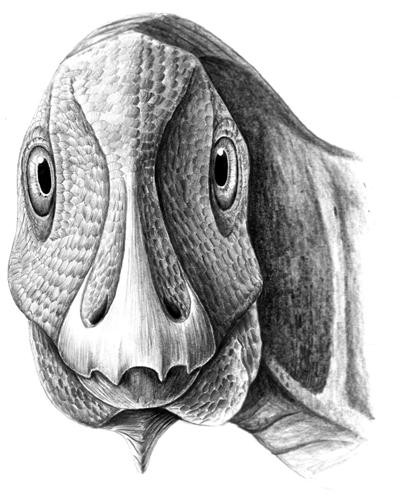For the first time ever, scientists have uncovered evidence of a tumor growth from a dinosaur fossil, from the Valley of the Dinosaurs in western Romania. New findings revealed that this duck billed dinosaur suffered from ameloblastoma which is a benign, non cancerous growth that can also affect humans, mammals and other reptiles.
The dinosaur remains were unearthed in Haţeg County Dinosaurs Geopark in Transylvania, as scientists located the tumor inside the jaw of the primitive hadrosaur known as the Telmatosaurus transsylvanicus. Scientists estimate that this dwarf dinosaur is aged from 69 to 67 million years old.
According to Kate Acheson from the University of Southampton, this discovery is also the first ever fossilized record of a dwarf dinosaur. The Telmatosaurus is also known as a close relative of the duck billed dinosaur, in which, the presence of this deformity can provide essential clues about their evolution and how duck billed dinosaurs are more prone to tumors than other dinosaur species.
New findings also suggest that this tumor is not painful for the dinosaur, since the tumor did not fully develop yet when the juvenile dinosaur died. However, researchers considered that this tumor may have indirectly caused this premature death.
According to Zoltán Csiki-Sava from the University of Bucharest, the team has not yet identified the cause of this tumor growth where it is also still unknown how the dinosaur died since fossilized jaw evidence can only reveal so much of the dinosaur's circumstances.
Scientists now suggest that this dinosaur was also attacked by a predator where they link this event as how modern day animals are more prone to attack a member of a herd that appears to be different, more disabled or possess a physical deformity.
Researchers also anticipated to reveal ancient diseases from dinosaur fossils however they were surprised to find a tumor, which also affects modern day animals, using micro CT scan techniques on the jawbone of the Telmatosaurus.
This new study is published in the journal Scientific Reports.



























